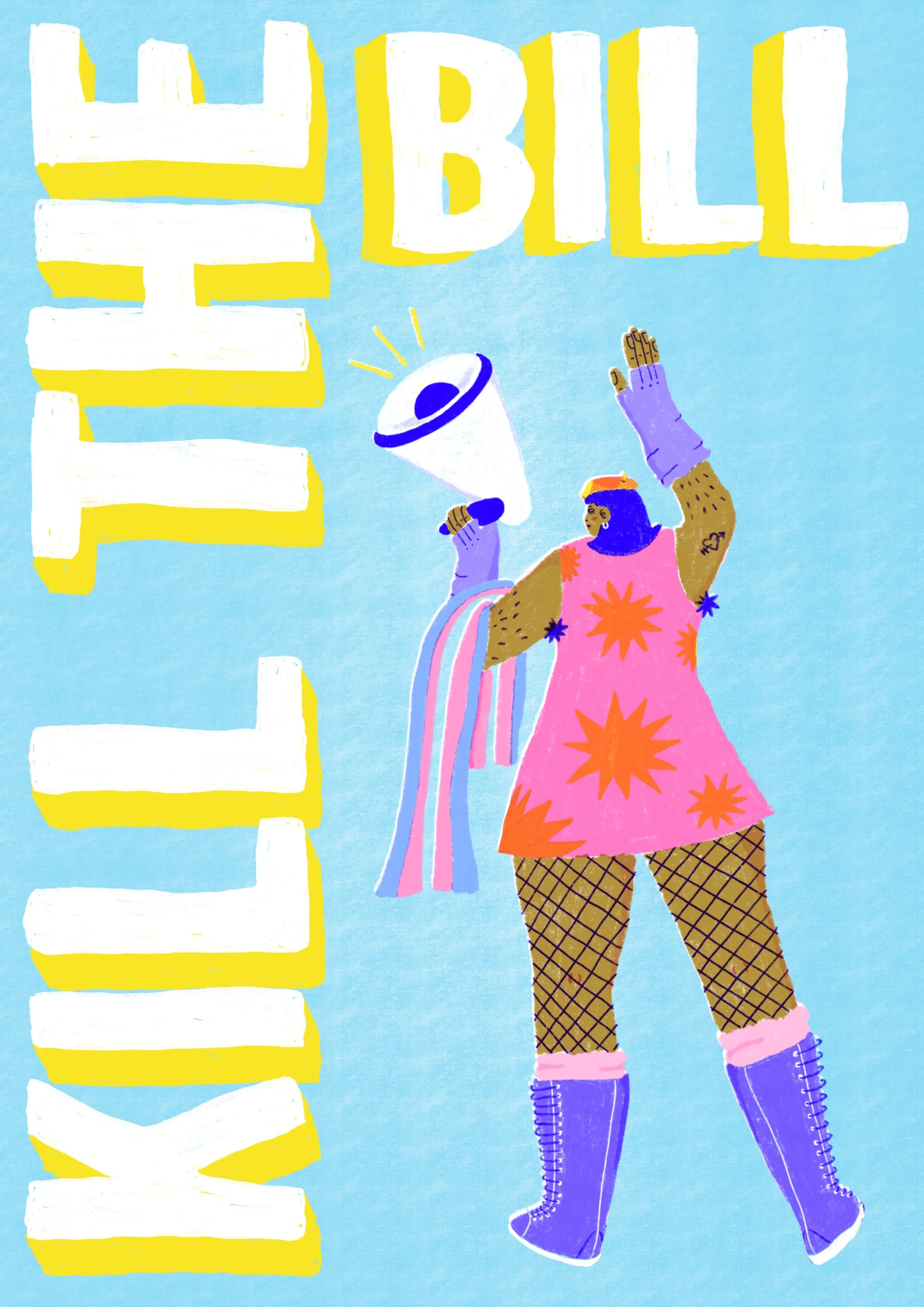How to Be a Man Who Doesn't Scare Women
TW: Content in this article includes references to sexual harassment, assault and violence against women.
Sarah Everard was kidnapped while walking the 50-minute journey home from her friend’s house through Clapham Common. She took a well-lit route, made a phone call on the way and wore brightly coloured clothing – in short, she did everything women are taught to do to protect themselves, and it still wasn’t enough.
Her disappearance, and the subsequent discovery of her body, have been a bleak reminder of the extent to which women are forced to normalise the threat we live with every day. In the weeks since, horrifying statistics have been circulating on social media – 97% of women in the UK have been sexually harassed – and yet for us, these figures were entirely unsurprising. They simply reflect a reality which we have learned to outrun.
One of the more unexpected side effects of the discourse around women’s safety was the hordes of men taking to social media, asking “what can we do to make you feel safe?”. While it’s slightly exasperating that this (well-intentioned) question once again puts the onus on women to be the educators, I do appreciate the sentiment.
Some of the suggestions below might seem blindingly obvious – but if it’s never occurred to you that you might be capable of unnerving a woman on the street, on a train, in the workplace or at a party, perhaps this list will help.
1. Keep your distance.
Walking is like driving – you need to stay more than two chevrons apart. If you’re behind a woman on a relatively quiet street, try and put a reasonable distance between you – or better still, give us a wide berth while you overtake.
2. Cross the street.
Similarly, you could cross the street and walk on the parallel pavement, making it absolutely clear that you’re on your own path. These are small, simple gestures that take seconds, but they could be the difference between a leisurely stroll and a panic attack.
3. Make a phone call.
Preferably to your mum. It’s hard to feel threatened by a man who’s asking their mum how the family dog is over the phone.
4. Walk your friends home.
If you’re hanging out with your female friends (hashtag blessed) then it’s worth giving some extra consideration to whether or not we can safely get home before it’s dark. Public transport isn’t particularly Covid-safe, so if we’re planning to walk, why not offer to accompany us home?
5. Don’t touch a woman you don’t know.
This should be obvious. Before you even approach a woman you don’t know, think about whether or not it’s appropriate, and consider the situation: are you somewhere dark, or in a place without witnesses?
If you do approach a woman for good reason, don’t touch her without her consent. For decades, this kind of casual physical interaction (an unprompted arm around your shoulder, a hand sliding onto your knee) has been portrayed as contact that men are entitled to initiate. This is not the case, and we’re tired of smiling placidly while we attempt to escape.
6. Be mindful on public transport.
Nearly every woman I know has experienced some form of sexual harassment on public transport. Something about the contained space and lack of supervision seems to breed performatively masculine behaviour. If there’s plenty of space in the carriage, don’t sit next to a woman on her own, and if you’re with a group of friends, try to keep the noise down – especially if you’re drinking.
7. Call out your mates.
It’s incredibly dispiriting that, four years after the #MeToo movement went viral, it still falls to women to instigate the difficult conversations; to call out their abusers, point out mistreatment and pursue justice. The only way we can squash this kind of systemic sexism is to call out every instance of it – even when our friends are the perpetrators. Sure, no one likes a “party pooper”, but no one likes being the butt of a sexist joke, either.
8. There is no excuse – ever – to get your genitals out in public.
I don’t care how much you have to piss. Keep it out of sight.
9. Don’t catcall.
No, we don’t want to hear what you think about our bodies, or what you’d like to do to them. No, we’re not being “uptight” when we tell you to get in the bin. Your opinion is completely unsolicited, it reduces us to what we look like, and is often accompanied by threatening behaviour.
10. If you’re in a group of men, don’t approach a woman who’s alone.
When a group of unfamiliar men approaches me, my first instinct is to flee. It’s intimidating. You might be the nicest bunch of nerds on the planet, but to a woman who doesn’t know you, it makes no difference.
11. Listen to women, and don’t be sceptical of their experiences just because you “don’t know any rapists”.
No, it’s “not all men”, but it is 97% of women. Let that sink in. Your friends and colleagues may not strike you as people capable of sexual harassment, but you’re hardly their target demographic.
In England, only 1.7% of reported rapes reach prosecution. That means 98.3% of rapes are committed by someone who walks free. These crimes are not solely committed by friendless, shifty-looking incels. They’re committed by people with loving family, nice houses and big friendship groups. I might know a rapist, and so might you.
Sure, offences like rape and murder are at the far end of the spectrum. It might even seem extreme to reference them in connection with “mild” sexual harassment like verbal abuse. But rape and murder don’t come from nowhere. The perpetrators of these crimes are often reported for minor offences first.
In 2016, Shana Grice – a 19-year old from Brighton – was fined for wasting police time after reporting her stalker to the authorities on five separate occasions. Several months later, Shana’s stalker murdered her. Her death was completely avoidable, and occurred because our authorities still don’t listen to, or believe women.
Sarah Everard’s killer was reported for indecent exposure, just three days before he committed kidnap and murder.
This is why it’s crucial that we don’t let the smaller instances of sexual harassment slip through the net, just because it’s more convenient. Catch behaviour like this before it blooms into something more violent, and you might save someone’s life.
So please - have the awkward conversations, be the person who holds your friends to a higher standard, and be mindful of your own behaviour as well. That’s how to be a man who doesn’t scare women, and how to be an ally to us, too.
Cover art from @featherstoneprints.





